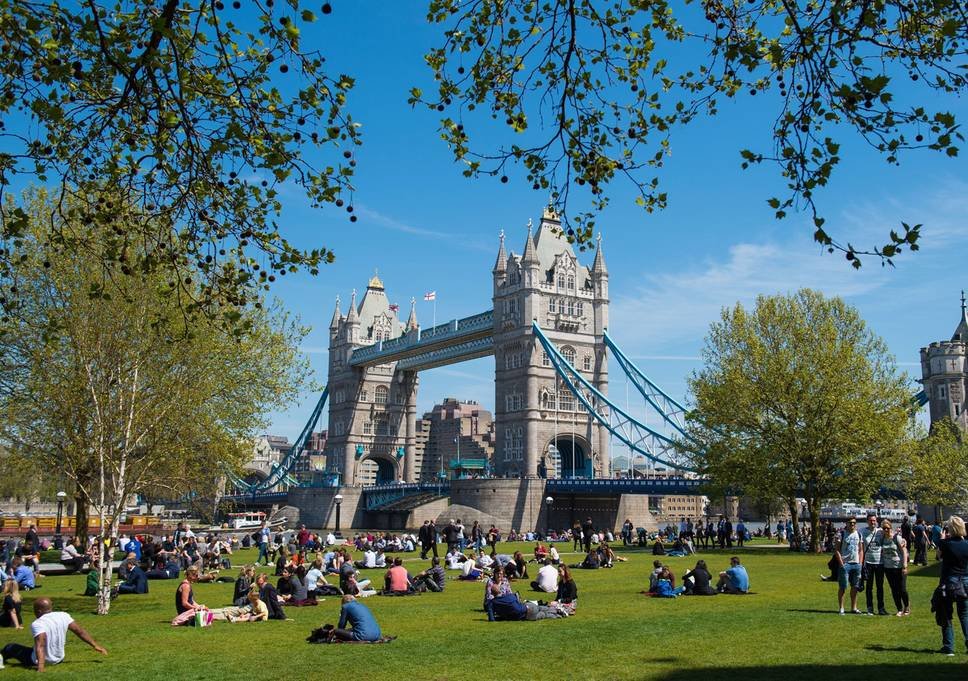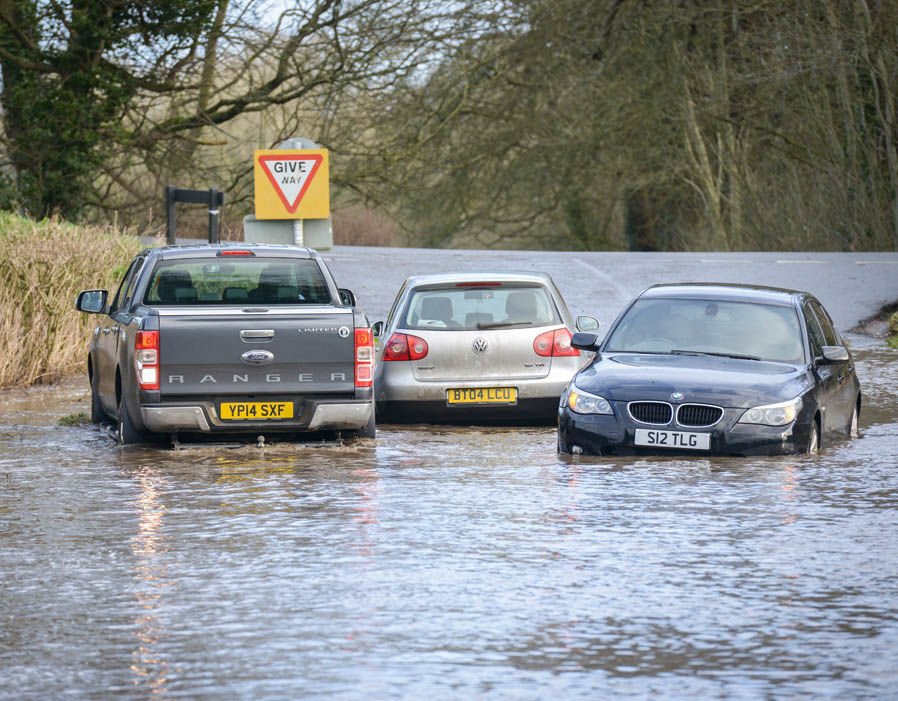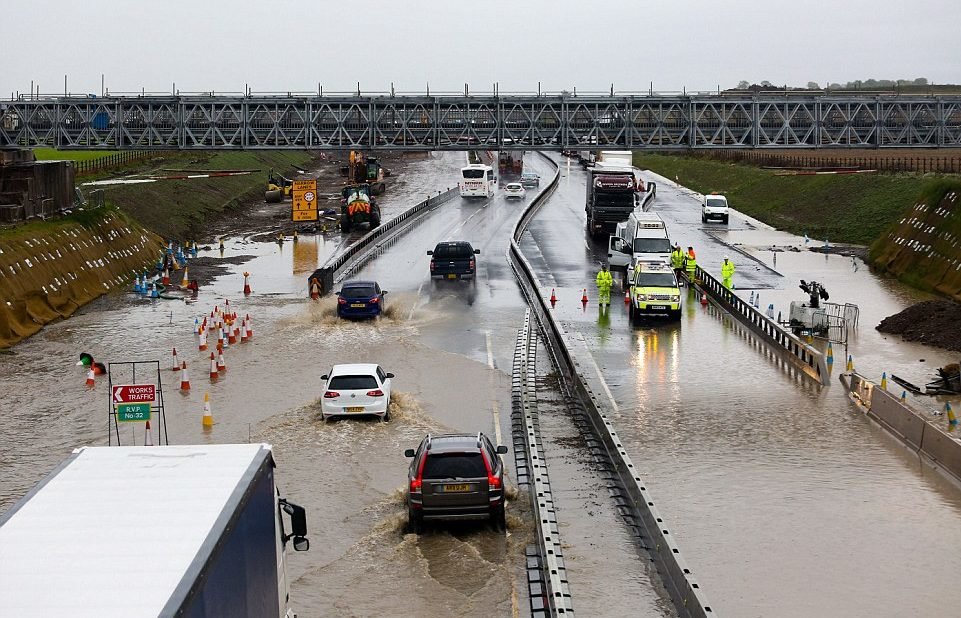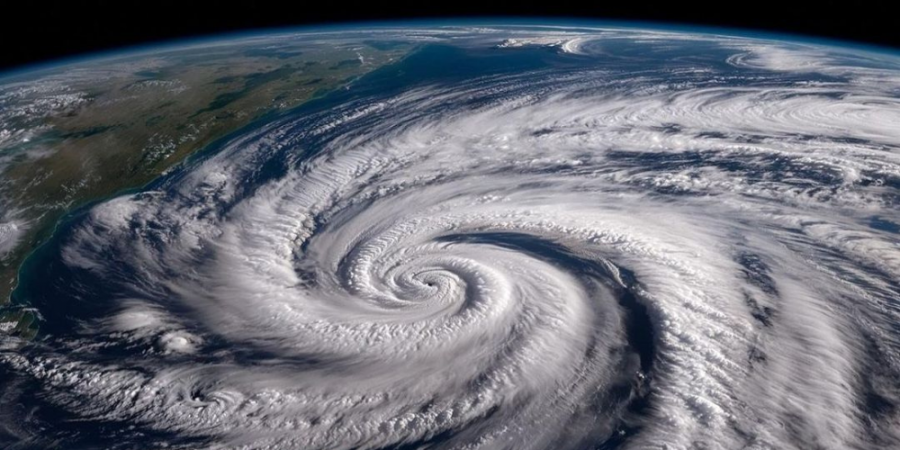Southern Britain is already in chaos due to the torrential downpours and now more than 50 flood warnings have been issued by the Environmental Agency in some parts of the UK.
The heavy rains and floods have caused the closure of several roads in Britain while an expensive rescue operation was launched earlier this week to save a herd of cows trapped in the floods of Exmouth, Devon.
Weather conditions are set to improve after this week’s heavy downpours as the country is set to get its first taste of warm sunshine this year. Get yourself a sunscreen lotion because UK is about to get hotter than Greece next week!

Forecasters say that temperatures in the UK are set to soar above 25 degrees Celsius next week, making the country hotter than Greece
UK Expected to be Hotter than Greece
The Britons have had their fair share of rough weather after a miserable winter which plunged the country in deep snow, heavy rains, and floods. But a major upturn of fortune awaits at the end of the damp, cold week as weather forecast by Met Office suggests that the temperatures in UK are set to see a sharp increase next week, making the country even hotter than Greece and Canary Islands.
Met Office announced that the weather conditions will finally stabilize in UK next week with a decent spell of spring sunshine and warm weather to give the Britons an early taste of summer. Some parts of the country can expect highs of 25 degrees Celsius, which is 5 degrees warmer than some of the hottest regions of Europe.

Forecasters clarified that the temperatures will start to creep by the end of this week with a chance of light showers, followed by a dry, sunny spell that may last for several days.
Meanwhile, in Europe
Europeans are eager to welcome the spring sunshine but the sudden warmth may come at the cost of floods and extreme weather in some parts of the continent. The current forecast suggests that Germany, Ukraine, and Belarus are to face erratic weather patterns including heavy downpours which could lead to a serious flooding risk in the Balkan Peninsula. Meanwhile, conditions will be much calmer in western Europe with a high chance of unseasonable warmth and persistent sunshine.
Alan Reppert, a senior meteorologist at AccuWeather said that spring might be delayed in countries like Germany and Poland where thunderstorms and extreme weather conditions will continue until May leading to delays in transport and weakening of the trees.
The storms will subside at the end of May giving way to warmer weather and sunshine in central and eastern Europe. Reppert explained that the early spring storms may lead to flash flooding, strong winds, and even tornado risk. The Alps in Balkan Peninsula are also at the risk of heavy downpours and floods.
UK Joins Fight Against Climate Change

UK has finally decided to do something about the recent erratic weather patterns by joining the fight against climate change and committing to a carbon-neutral future
Erratic weather patterns across the globe and heavy flooding caused by the melting ice is alarming climate change activists who are calling for immediate action to stop the emission of greenhouse gasses. Many countries including France and New Zealand have committed to a carbon-neutral future to fight against climate change and now UK has become the first major economy to announce a reduction in carbon emission by 80 per cent in hopes of becoming a carbon-free zone by 2050.
The country’s decision comes as part of its commitment to the Paris Agreement which aims at reducing global temperature rise to pre-industrial levels in order to prevent the disastrous consequences of global warming. To reach this goal, every country in the world will have to reduce its carbon emission to reach a net-zero value by 2050, which is the point where the emission of carbon equals its removal from the atmosphere.
The Climate Change Committee says that UK has made promises to cut its greenhouse gas emissions in the past as well but has failed to adhere to the goal. In order for the country to meet its new net-zero emission target by 2050, it needs to design a detailed plan of action and create new laws to ensure that the goal is met in time. But the efforts of a few countries are not enough to ensure a safer future for our planet.
The Committee says that all governments will need to band together in the fight against climate change and UK’s decision to cut carbon emission may prove to be a valuable lead for other countries to follow.










